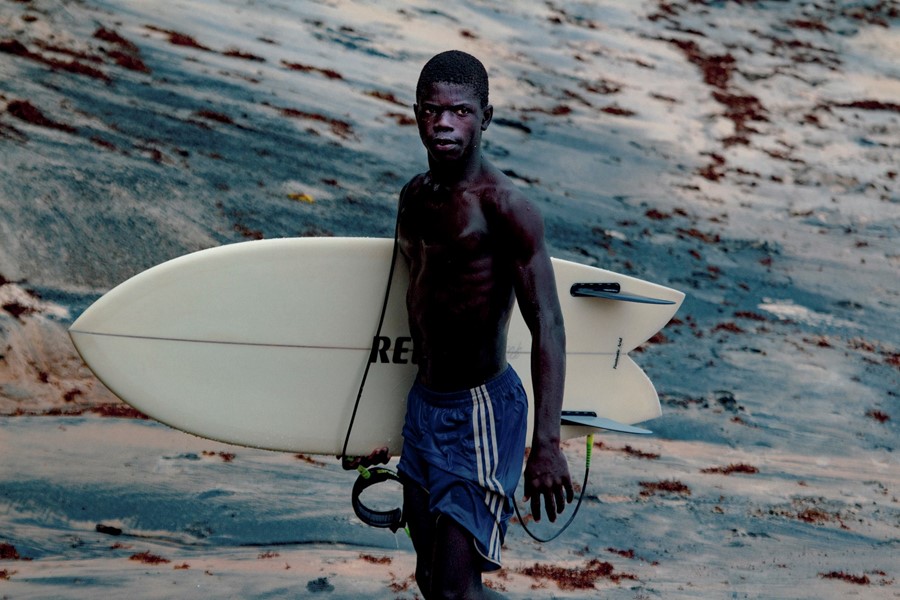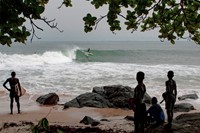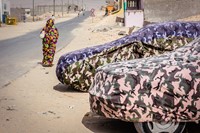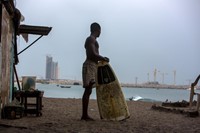A new book challenges the perception of what surf culture means in the world, celebrating its various expressions throughout the African continent
When you think of surfing or surf culture in broader terms, it’s unlikely that Africa come to mind. You’re more likely to think of Southern California, or the south coast of Australia, which have historically been considered the global centres of surf. However, Afrosurf – which is the first book devoted to surfing in Africa – challenges this narrative by documenting surf culture across the continent. The book, which is backed by a global publishing deal from Penguin Random House, is produced by African surf brand Mami Wata, and will be donating all proceeds to African Surf Therapy projects Waves for Change and Surfers Not Street Children.
“I wanted to explore surfing on the continent of Africa for a long time since I would say I was a teenager when I first discovered surfing,” Selema Masekela, the co-founder of Mami Wata tells AnOther. “There were so many spots that I would see in surf movies and magazines, particularly in South Africa, that blew me away how perfect they were. Jeffreys Bay, obviously, as well as the beaches in Durban and Cape Town. And knowing that that’s where my family was from, even though I couldn’t go there while my father was a political exile during apartheid, it made me feel a sense of pride that those waves were in my country of origin. Then in 1991, I got to go for the first time and experienced them first hand. That experience changed my life forever and made me infinitely curious about what surfing could mean in the entirety of the continent and what the waves might be like.”
Aside from surf culture, people are paying an increasing amount of interest in the new subcultures emanating from Africa. Skateboarding in Southern Africa and the alte fashion and music subculture from West Africa are just two examples that have recently attracted global attention – and all these go to further highlight all the interesting and non-stereotypical things African youth are doing and creating.
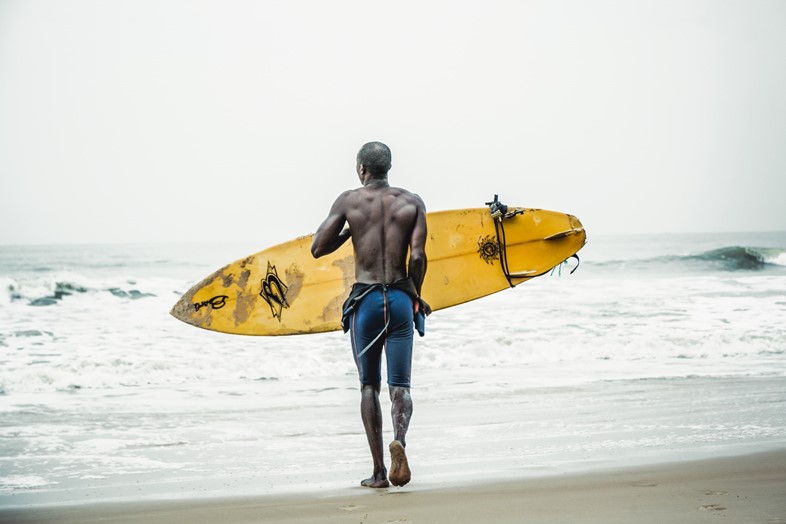
“I think people are beginning to pay attention to the exploration of niche subculture experienced in Africa because it’s a new form of African self-expression,” Masekela says on the exploration of alternative youth subcultures in Africa. “It is the case when it comes to music in the arts and everything else that Africans decide to be passionate and thorough about; those expressions are unique and come with their local signatures. What skateboarding feels like in Ghana or Nigeria will look and feel different from what skateboarding might feel like in Barcelona or New York.”
Afrosurf details an all-encompassing collection of experiences, stories, art and interviews that remind us of the history and beauty that Africa offers regarding surfing and its related culture. It features stories from Morocco, Ghana, Senegal, Mozambique, Sao Tome, South Africa, Liberia, Somalia, Nigeria, Madagascar and more. From first-hand accounts of what it was like surfing in Ghana in the 1600s to interviews with young African surfers who are making a name for themselves in the global scene, Afrosurf tells an authentic detailed story of the past and present of surf culture in African countries.
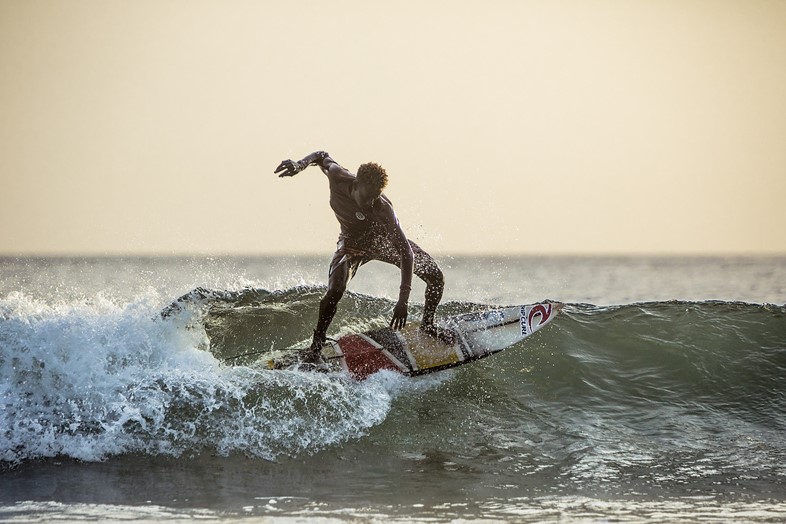
“I think this book challenges the perception of what surf culture means in the world,” Maesela notes. “You know, there is a misconception and idea that surfing is something that is, for the most part, a practice of white people particularly, through the lens of Southern California and Australia, you know, with a little bit of a nod towards the Hawaiians and Polynesians but that’s it. That those are the definitions of what surf culture is. This book, I believe, smashes open and redefines what surf culture means. As you see in these pages, how indigenous culture meshes with this surfing lifestyle and in various regions across the continent creates its signature of what surf culture feels like.“
Afrosurf is published by Mami Wata, and is available to purchase now.
